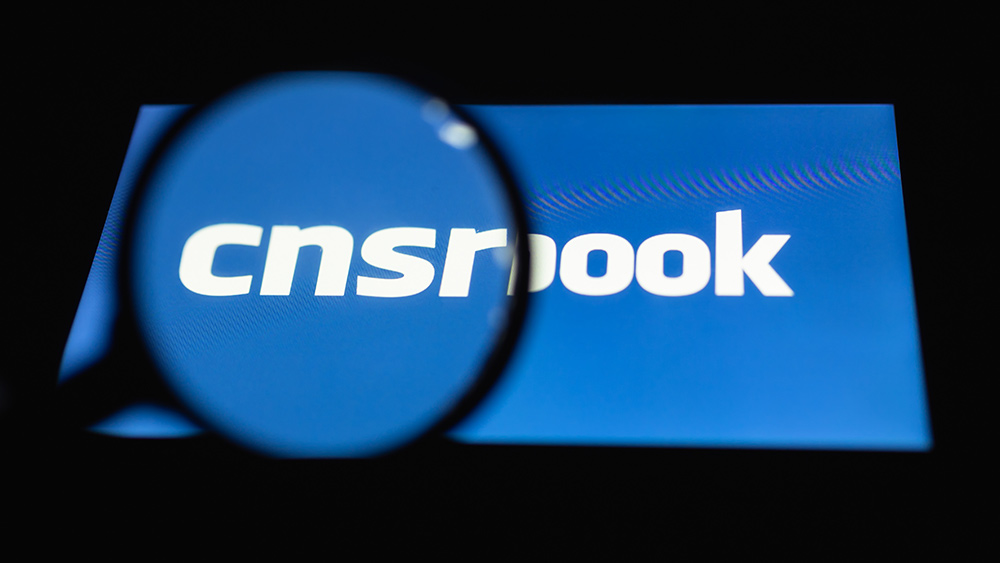DOJ moves forward in stripping Big Tech of Section 230 protections
06/29/2020 / By Ethan Huff

In accordance with President Donald Trump’s executive order concerning Big Tech censorship, the Department of Justice has put forth new guidelines urging tech companies to more fairly “police” the content that passes through their digital platforms.
Because several of Trump’s tweets have been “fact-checked” or removed in recent weeks, Attorney General William Barr has finally decided to take action in addressing a problem that has plagued the “Big Three” – Facebook, Twitter, and Instagram – for years.
Conservatives especially have been repeatedly targeted for sharing “misinformation” online, resulting in many of their pages being shadow-banned or removed. This is what happened to Natural News and the Health Ranger, as you are probably aware.
Since this type of selective censorship is showing no signs of relenting any time soon, AG Barr is ready to modify the qualifications for immunity that many tech companies currently hold under Section 230 of the Communications Decency Act.
“Several online platforms have transformed into some of the nation’s largest and most valuable companies, and today’s online services bear little resemblance to the rudimentary offerings in 1996,” the department stated in a recent announcement.
“With the realities of the modern internet,” it went on to state, the time is ripe to adjust tech company immunity and better protect online free speech and the First Amendment.
Listen below to The Health Ranger Report as Mike Adams, the Health Ranger, talks about how Big Tech is currently at war with humanity:
Will a divided Congress adopt something like this, especially during an election year?
While efforts to reign in Big Tech’s abuses of the CDA’s Section 230 immunity protections have had bipartisan support in the past, some Democrats are reluctant to support this current effort because they believe that it is motivated primarily by Trump’s own personal upset over being censored.
Senator Richard Blumenthal, for instance, a Democrat from Connecticut, recently spoke out and said that while he remains one of Congress’ loudest critics of Section 230, he now has “no interest in being an agent of Bill Barr’s speech police.”
It is also an election year with Trump facing possible reelection, which makes the issue even more controversial at a time when both sides of the aisle are trying to garner online support from voters amid a growing national divide.
One thing the department has made clear is that tech companies, regardless of their current status under Section 230, do not have immunity from civil enforcement actions brought by the federal government. They also cannot use immunity as a defense against antitrust claims.
Facebook has, of course, come out in opposition to the changes, claiming that they would expose companies “to potential liability for everything that billions of people around the world say.”
At the time when they were first established, these immunity protections were not intended to give platforms like Facebook, Twitter, and Wikipedia, none of which existed, the freedom to censor content as they please while also being shielded from liability. This is the impetus behind the proposed changes.
Coming to the defense of its member companies, the Internet Association, a digital company trade group, publicly announced that it opposes any alterations to Section 230 immunity because Silicon Valley corporations like Facebook and Twitter will supposedly lose their ability to operate.
“The threat of litigation for every content moderation decision would hamper IA member companies’ ability to set and enforce community guidelines and quickly respond to new challenges in order to make their services safe, enjoyable places for Americans,” the group stated.
To keep up with the latest news about Big Tech censorship, be sure to check out Censorship.news.
Sources for this article include:
Tagged Under: banned, Big Tech, CDA, Censored, Censorship, Communications Decency Act, Department of Justice, DOJ, free speech, immunity, justice, Section 230, tech giants
RECENT NEWS & ARTICLES
COPYRIGHT © 2017 BigTech.news
All content posted on this site is protected under Free Speech. BigTech.news is not responsible for content written by contributing authors. The information on this site is provided for educational and entertainment purposes only. It is not intended as a substitute for professional advice of any kind. BigTech.news assumes no responsibility for the use or misuse of this material. All trademarks, registered trademarks and service marks mentioned on this site are the property of their respective owners.


















